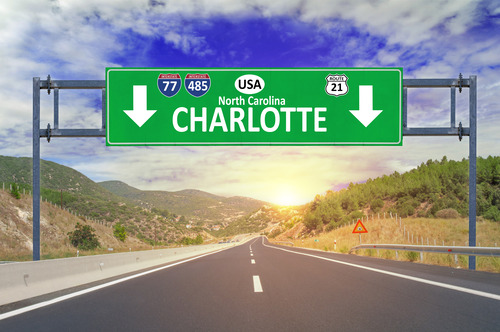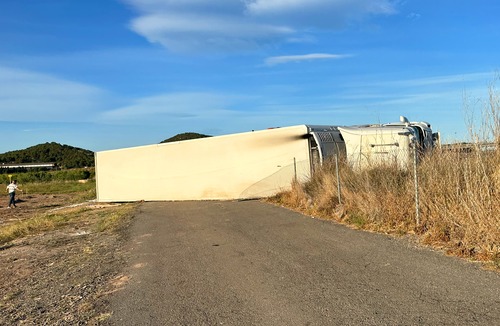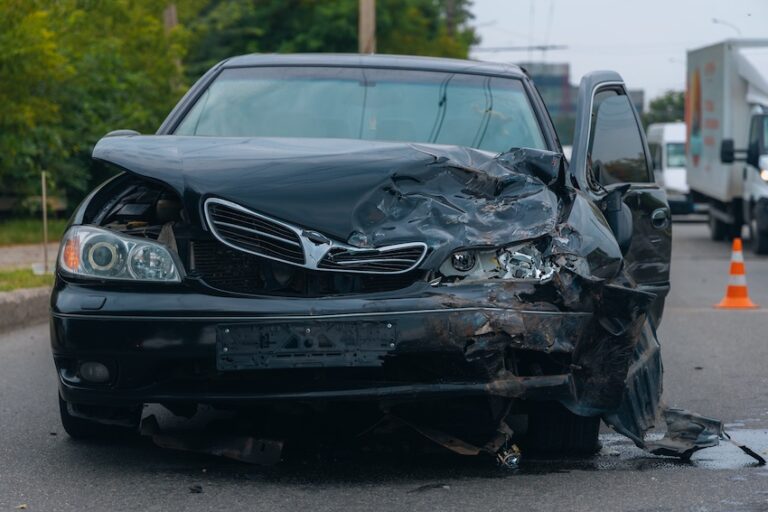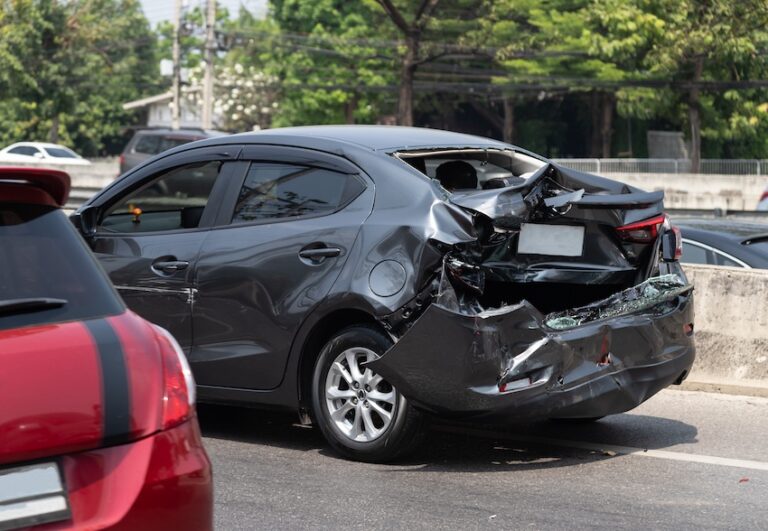The Critical Role of Trucking Regulations in Protecting Charlotte Drivers
When a serious collision involves a commercial truck, the aftermath can be devastating for victims and their families. Determining liability often depends on whether trucking regulations were followed by the driver, employer, or carrier. If you or a loved one has been involved in such an incident, contacting an experienced truck accident lawyer at Panchenko Law Firm can help protect your rights and hold negligent parties accountable.
In Charlotte, where commercial motor vehicles travel daily across state lines, the intersection of federal regulations, DOT regulations, and state enforcement actions plays a critical role in how cases are investigated and resolved.
Why Trucking Regulations Matter in Charlotte
Trucking regulations exist to protect the general public, ensuring the safe operation of commercial vehicles, from large freight trucks to tow trucks and buses. The Federal Motor Carrier Safety Administration (FMCSA), an agency under the Department of Transportation (DOT), publishes and enforces federal motor carrier safety regulations. These rules govern everything from commercial driver’s license standards to financial responsibility, and they apply to both employers and employees in the trucking industry.
In Charlotte, motor carriers that operate in interstate commerce are subject to both federal law and state-specific requirements. Violations of these safety regulations—whether involving hazardous materials, exceeding a truck’s gross vehicle weight rating, or ignoring enforcement personnel—can quickly lead to accidents with catastrophic consequences.
What Are Trucking Regulations?
At their core, trucking regulations are a combination of federal regulations published in the Federal Register, state-level rules, and DOT regulations that dictate how motor carriers and truck drivers must operate. These regulations cover:
- Registration and authority to engage in transportation services
- Motor carrier safety regulations regarding drivers, vehicles, and service
- Compliance audits and roadside inspections
- Requirements for financial responsibility and insurance coverage
- Obligations of freight forwarders, carriers, and businesses that assign employees
By enforcing safety standards, the motor carrier safety administration ensures that truck drivers, bus drivers, and commercial drivers meet strict requirements before transporting passengers or materials across state lines. At their core, trucking regulations are built around the principle of commercial motor vehicle safety, ensuring that motor carriers, truck drivers, and employers operate within strict safety standards that protect the general public.
Key Areas Covered by Trucking Regulations
Commercial Driver Standards
To legally operate a commercial vehicle, drivers must hold a valid commercial driver’s license (CDL). The commercial driver’s license standards include testing for safe operation, knowledge of DOT regulations, and skills in handling commercial motor vehicles.
Violations such as driving without a valid CDL, falsifying training records, or exceeding hours-of-service rules can expose employers and carriers to enforcement actions. Proper licensing ensures that truck drivers and bus drivers are qualified to protect the general public while transporting passengers and materials.
Vehicle Weight & Safety Standards
Another critical component of trucking regulations is monitoring the gross vehicle weight rating (GVWR) and the gross combination weight rating (GCWR). These ratings specify the maximum safe weight a vehicle or combination of vehicles can carry.
Overloaded commercial vehicles or improperly balanced tow trucks pose risks not only to employees and employers, but also to surrounding motor vehicles on Charlotte highways. Exceeding these safety standards can lead to tire blowouts, brake failures, and rollover accidents.
Hazardous Materials & Transport
Transporting hazardous materials requires strict compliance with federal motor carrier safety guidelines. Drivers must undergo specialized training, carriers must ensure proper placarding, and enforcement personnel must monitor compliance closely.
Failure to follow federal regulations when handling hazardous materials can expose the general public to toxic spills, fires, or explosions. In Charlotte, where trucks regularly cross state lines, strict rules apply to both local transportation services and interstate commerce.
Financial Responsibility & Insurance
The financial responsibility section of trucking regulations requires motor carriers to carry sufficient insurance to cover damages in the event of a crash. Without proper coverage, accident victims could struggle to obtain compensation for injuries and losses.
This requirement protects passengers, other drivers, and the general public, ensuring that carriers, freight forwarders, and companies that assign employees are prepared for the financial impact of accidents.
How Trucking Regulations Apply in Charlotte Accidents
In Charlotte, when a truck accident occurs, enforcement personnel and attorneys alike look to trucking regulations to determine liability. Key questions include:
- Did the driver have the proper commercial driver’s license?
- Was the vehicle within its gross vehicle weight rating?
- Were hazardous materials transported in compliance with DOT regulations?
- Did the employer or carrier fail in its duty of compliance?
When violations are uncovered—whether through inspection, office audits, or review of the Federal Register—they can serve as evidence of negligence. A truck accident lawyer from Panchenko Law Firm can use these violations to build a strong case for injured victims.
Common Violations That Lead to Charlotte Truck Accidents
Some of the most frequent violations of trucking regulations include:
- DOT regulations breaches: fatigue, exceeding hours-of-service limits, falsifying logbooks
- Commercial vehicle failures: defective brakes, worn tires, unsafe operation
- Hazardous materials mishandling: poor labeling, untrained employees, failure to comply with federal law
- Employer liability: failure to train employees, pressure to ignore safety standards, or lack of registration
Each violation increases the risk of catastrophic injury, especially on Charlotte’s busy highways where commercial motor vehicles share the road with everyday drivers and passengers.
The Role of Enforcement and Compliance
Trucking regulations are only as effective as their enforcement actions. In Charlotte, DOT and FMCSA regulations are enforced through roadside inspections, weigh stations, and compliance audits.
Enforcement personnel monitor safe operation, confirm proper registration, and review records to ensure employers and employees adhere to rules. Updates to federal regulations are published in the Federal Register, providing clear guidance to carriers and transportation services on how to maintain compliance.
When violations occur, the agency may impose fines, revoke operating authority, or take legal action against carriers. This enforcement is essential for maintaining safety standards and protecting the general public.
Why Trucking Regulations Protect the General Public
At their core, trucking regulations exist to safeguard the general public. By ensuring that commercial drivers are properly trained, that vehicles are within weight limits, and that hazardous materials are handled with care, these rules directly reduce the risk of fatal collisions.
Every layer of oversight—from the motor carrier safety administration to DOT regulations and federal law—is designed to enforce safety. Without strong regulations, accidents involving commercial vehicles would be far more frequent, leaving passengers, drivers, and entire communities vulnerable.
Frequently Asked Questions About Trucking Regulations and Charlotte Truck Accidents
What role do trucking regulations play in determining liability after a Charlotte truck accident?
Trucking regulations play a crucial role in how liability is assigned after a truck accident in Charlotte. These federal and state safety regulations—such as FMCSA regulations, DOT regulations, and motor carrier safety standards—establish clear rules for commercial motor vehicles, truck drivers, and motor carriers. When an accident occurs, enforcement personnel and attorneys investigate whether the carrier or driver complied with requirements like commercial driver’s license standards, gross vehicle weight rating limits, and hazardous materials transportation rules. A violation of trucking regulations can serve as evidence of negligence, making it easier for victims to prove fault and recover compensation.
How do trucking regulations help prevent commercial vehicle accidents in Charlotte?
Trucking regulations are designed to ensure the safe operation of commercial motor vehicles across Charlotte and throughout interstate commerce. By enforcing strict limits on gross combination weight rating, requiring proper financial responsibility insurance for motor carriers, and mandating training for commercial drivers, these rules reduce the risk of collisions. Regulations covering transporting hazardous materials, CDL licensing, and DOT compliance directly protect passengers, other drivers, and the general public. Without these safety regulations, violations like overloaded trucks, fatigued drivers, or improperly secured hazardous materials would drastically increase the number of motor vehicle accidents.
What are the most common trucking regulation violations that lead to Charlotte truck accidents?
The most common trucking regulation violations in Charlotte include exceeding hours-of-service limits set by FMCSA regulations, operating commercial vehicles beyond their gross vehicle weight rating, and failing to comply with hazardous materials transportation standards. Additional violations include motor carriers neglecting their duty to train employees, ignoring DOT regulations on maintenance, or failing to register properly with the motor carrier safety administration. Each violation directly undermines safety standards, putting truck drivers, bus drivers, and the general public at greater risk of harm. These enforcement actions often appear in the Federal Register and are closely monitored by agency officials to ensure compliance.
Why should victims of Charlotte truck accidents consult a lawyer familiar with trucking regulations?
Victims of Charlotte truck accidents should consult a lawyer experienced in trucking regulations because these cases are far more complex than standard motor vehicle accidents. A skilled truck accident lawyer understands how federal law, DOT rules, and motor carrier safety regulations intersect with state enforcement actions. By reviewing compliance records, driver logs, registration status, and financial responsibility filings, attorneys can uncover violations that prove negligence. At Panchenko Law Firm, our attorneys have deep knowledge of FMCSA regulations, federal motor carrier safety standards, and DOT compliance. This expertise allows us to hold carriers, employers, and truck drivers accountable when their failure to respect safety regulations causes injury to the general public.
Don’t Wait—Trucking Regulation Violations Demand Immediate Action
Time is critical after a Charlotte truck accident.
Contact Panchenko Law Firm today to speak with an experienced truck accident lawyer who understands federal and state trucking regulations and can act quickly to protect your rights.
Don’t wait! Call to schedule a free consultation today. (704) 900-7675








